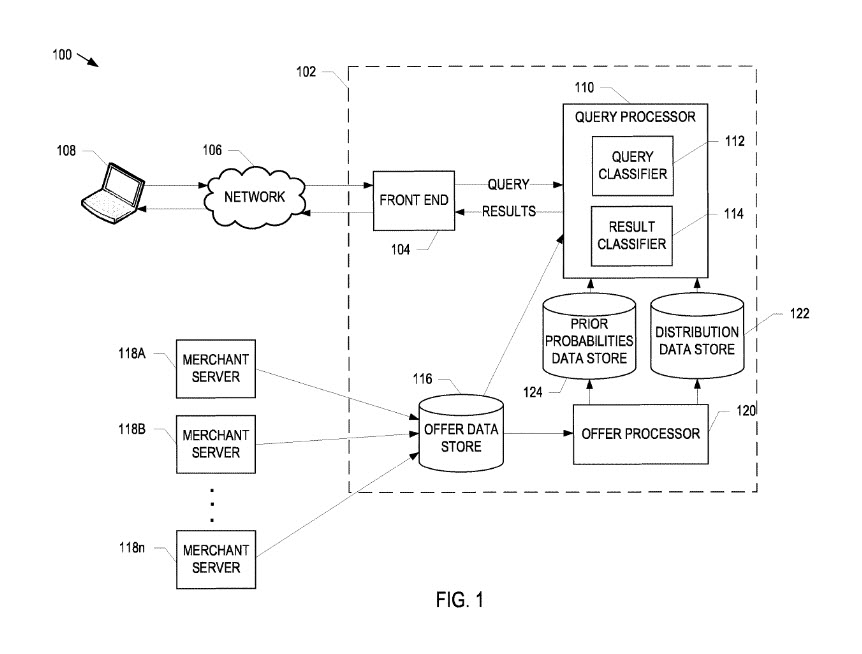Ranking Search Results for Product Queries vs. Accessory Queries
Many eCommerce sites on the Web carry products and accessories for sale online. A Google patent tells us how the search engine might distinguish between the two, and rank product queries higher than accessories queries.
The patent tells us about the problem caused by information like this being mixed on websites, and how that “intermingling can be frustrating to searchers:
A user search for information regarding a given product often returns a set of results that includes both product and accessory listings. The product and accessory results can be intermingled in the order of the results presented to the user. This can prove frustrating. For example, if the user is researching a product to make a purchasing decision, the user is likely to be less interested in results related to a product accessory for a product that the user does not yet own. Unfortunately, in cases where the results set includes intermingled product and accessory result listings, the user may have to visually scan each result to determine if the result is of interest. To determine if a given result is a related to a product or accessory, the user may have to select the result, by clicking on it, for example, to review it more thoroughly.
In short, the focus of this patent is to make it easier to distinguish accessories from products when ranking search results.
Part of the process described may include classifying a query as a product query or an accessory query and generating search results based upon that classification. If the query is for a product, then the results for accessories would be demoted.
Related Content:
The patent tells us that the advantages of following the process in the patent include:
- The invention can provide a set of results more relevant to a user query.
- If a user query is indicative of a product search, for example, accessory results can be decreased in rank or omitted from the results presented to the user.
This product queries patent can be found at:
Distinguishing accessories from products for ranking search results
Inventors: Srinath Sridhar, Ashutosh Garg, Kedar Dhamdhere and Varun Kacholia
Assignee: GOOGLE LLC
US Patent: 10,354,308
Granted: July 16, 2019
Filed: July 2, 2015
Abstract
Offer listings can be classified as accessory offers or product offers using a classification operation performed on a corpus of offers. Data from the classification operation can be used to classify received queries as either product or accessory, and to classify results as products or accessories for purposes of presenting a relevant list of results to a user.
How might a search engine be configured to distinguish accessory queries from product queries?
A query processor can identify results corresponding to a query and return those results.
Individual results in a set of results can be ordered according to a ranking score computed by the query processor. The result set can be delivered to the client computer as a complete set of results or delivered in segments. For example, the 10 highest ranked results can be delivered first in one web page that includes a link that can be selected by a user to cause the front end server to deliver the next 10 highest ranked results.
An Offer Data Store With Categories Identifing Product Queries
An offer data store includes offering records corresponding to items offered for sale by merchants.
Those merchants can, for example, register with the search engine to upload offer records to the offer data store, and the search engine can retrieve offer records from merchant servers through a file including the offer records from merchants and/or using a network crawling application. These offer data stores could be product feeds that a merchant submits to a search engine.
Merchants registered with the search engine can upload offer records to the offer data store from one or more merchant servers.
That offer data can include multiple fields such as:
- Title of the offer
- Description of the item for sale
- Price at which the item is offered for sale
- Category of the offer
The category field can include a category name and/or identifier from a list of categories designated by the search engine provider and provided to merchants. For instance, the list of categories can be provided to registered merchants, and the merchants can be instructed to categorize offer records by selecting one or more categories from the category list.
Query keywords can be compared to the category information, and the query classifier and result classifier can compare the query keywords and keywords from identified results to offer record keywords that have a calculated probability of being associated with an accessory, or with product queries.
So, a product might be a smartphone, and an accessory could be a phone case or a phone charger, or phone headphones.
So, someone searches for an iPhone, the Iphones are listed first as product results in response to product queries, and the iPhone cases and iPhone chargers would be diminished in rankings, so they are mixed with iPhone results.
Added January 28, 2020 – A related patent post, based upon the topic explains how Google might be grading unknown terms in product queries to learn more about different products on sale. That post is Google Product Search and Learning about New Product Lines
Search News Straight To Your Inbox
*Required
Join thousands of marketers to get the best search news in under 5 minutes. Get resources, tips and more with The Splash newsletter:
